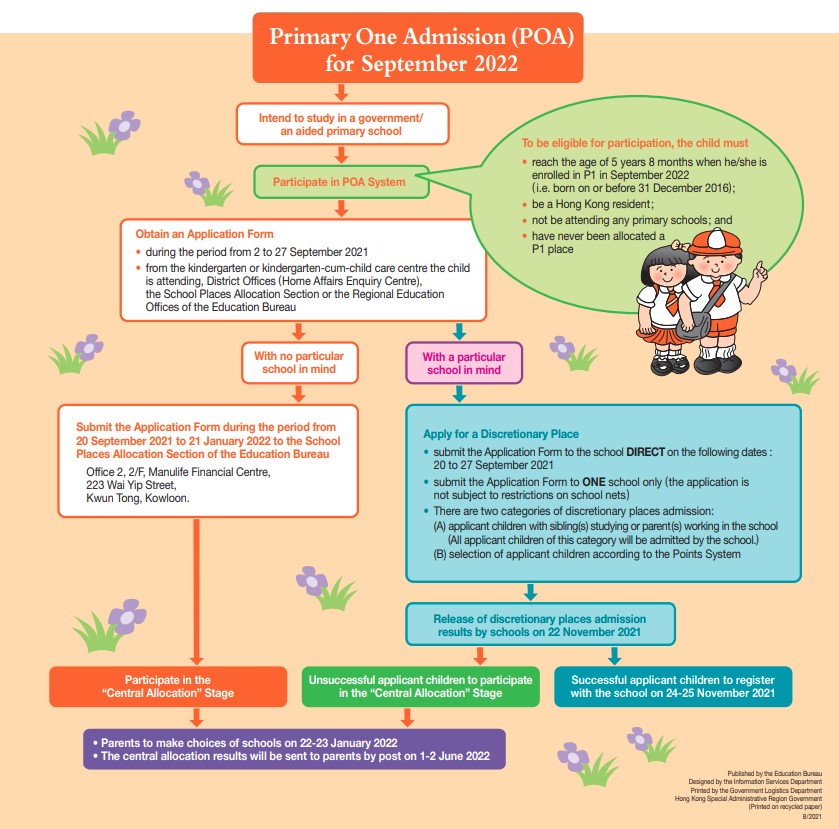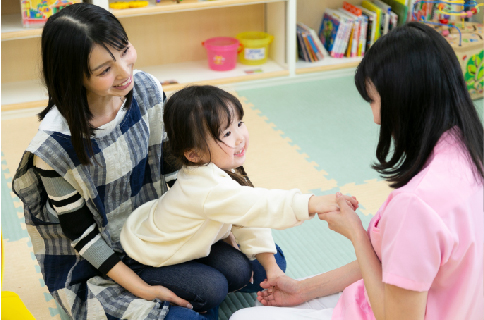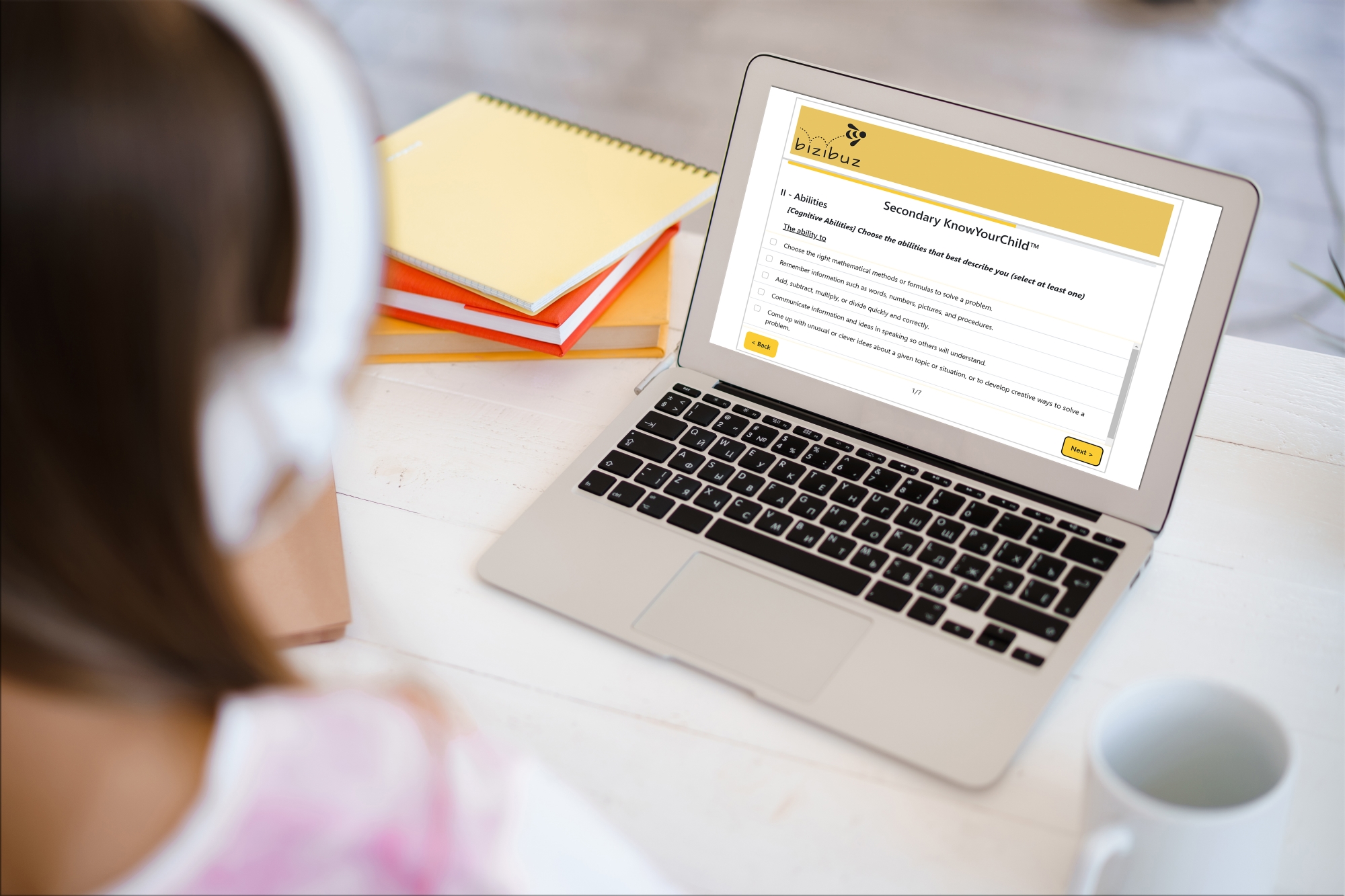By subscribing you are agreeing to our Privacy Policy
Ultimate guide to kindergarten & primary school admissions preparation in Hong Kong

If there’s one thing that’s sure to instil fear in the heart of a Hong Kong parent, it’s the prospect of Early Years and Primary school applications and admissions interviews. It’s perfectly understandable – we’ve all heard stories of how difficult it is to get your child into a top school.
We know how our children behave at home and what they are capable of, but what details to put in a school application? Is a grade 3 piano ABRSM certificate better than being part of a rugby club? And how will the children come across in an interview situation. Will they be clingy? How will they interact with other kids they don't know?
School applications take different formats depending on whether you are applying under the POA (Primary One Admission) System for a government / aided school, applying to ESF schools or private international schools. And even within private international schools there is a range of curriculum types. From International Baccalaureate (IB) Curriculum, International Primary Curriculum (IPC), UK National Curriculum, American Curriculum, Australian Curriculum and more.
Let’s debunk how you can prepare better for early years & primary school admissions!
Identify your preferred kindergartens or primary schools
So even before the admission panic sets in, the very first step is to identify what type of school you want your child to attend and ideally identify 2-3 preferred schools.
For government / aided schools, the POA System depends on whether you have a particular school preference and apply directly to the school for a discretionary place. This is usually offered if the applicant has a sibling at the school or a parent working at the school (applications must be submitted in late September), or as is more typical, apply under Central Allocation (applications must be submitted between late September to late January). Central Allocation involves nominating 3 school preferences and following submission procedures set by the EDB. You can find detailed notes on how to complete the application form here. If still unsuccessful, it is time to start door knocking by contacting the school directly to register and submit a portfolio.
Read the list of important dates of school admission process

For ESF Schools, you can apply to up to three selected schools during the month of September – within your residency zone as at the time of application, Discovery Collage (DC) or Renaissance College (RCHK). Please note though if you initially select an out of school zone option such as DC or RCHK, you are offered an interview and then decline, your application will be considered withdrawn from the other zoned alternatives. If you apply after September, your application will be placed on the waitlist according to your preferred school and date received. You can find the online application form and application instructions here.
Generally applications for international schools are open throughout the year but requirements vary from school to school so its recommended to reach out to the preferred school directly. Waitlists also tend to be long so early application is encouraged. Expect the most competitive schools to require a debenture, a mandatory school visit and interview, but at least applications are not zoned by residency.

Watch our webinar about how to successfully transition to international school
School open days and visits
The second step should involve a school visit so both the school and you can explore a fit. Check whether the staff are friendly and dedicated, whether the curriculum and school culture gel with your educational values, and what the facilities and learning environment are like. To the extent you decide to submit an application and a portfolio, understanding the ethos of the school will help you position your child for entry success.
Preparation for school application submission
Once you’ve selected your preferred schools, the third step involves submitting an application and compiling an admissions portfolio.
Your preparation of an admissions portfolio would usually include:
- report cards
- school awards
- documentation indicating proficiencies and aptitudes that are above average
- extracurricular activity attendance
- parent’s engagement photos
- and letters of recommendation from the kindergarten’s principal
If you’re a member of the Bizibuz platform, you can register for a KnowYourChild™ tool which is a digital assessment that benchmarks your child’s development across a broad spectrum of proficiencies and skills for pre-primary (3-6 year olds) and primary children (6-12 year olds).
For primary school applications, the pre-primary report has often been used to bolster a child’s admissions chances. Your child can complete the assessment in around 10 minutes per subject by registering here and then you can immediately print out a detailed report on their performance. Alternatively, your child can sit the KnowYourChildTM assessment under test conditions and parents receive a printed report with an embossed seal certifying that test conditions applied (contact info@bizibuz.com for further details).
Use promo code FIRST100 and try KnowYourChildTM for free now!
As a Bizibuz member you can also download all the extracurricular activity attendance of your child in one handy report as part of the preparation. It can act as a portolio for school admission submission. Just login, click on your login name and select My courses. The attendance report dropdown appears on the right hand side of the screen.
Don’t forget to incorporate your preferred school’s philosophy when writing a letter on how your child and your family will be a good fit for the school.
Preparing for school admissions interviews
Once you’ve submitted an application, the final step involves interview preparation. Will the interview be live online, in-person, in a group, recorded submission or something completely different? We consulted with Top Schools to answer all your questions on how to ace admissions interviews (Top Schools has a 100% placement record in Hong Kong, stretching back 10 years).

Early years admissions
The first thing to point out about Early Years admissions processes is that there is rarely a formal, one-on-one interview. Of course, each school’s approach varies, but the aim of the sessions is for the schools to see the kids in action so that they can assess their abilities and gain an insight into their personalities. Whether they do this online via Zoom or in-person depends on the Covid restrictions and whether or not the student is physically in Hong Kong.
With younger children, this interview/observation is often done using informal activities, much like those they would encounter on a typical day at kindergarten.
Some international schools in Hong Kong, for example, set up a carousel of activities in the classrooms. Each station is manned by an experienced teacher who interacts with the children as they play. Because the children are relaxed, it’s a great way for staff to assess the level they are at when it comes to things such as fine motor skills, numeracy and language ability.
As with any age, what the schools are really looking to establish is whether they and the child will be a good fit for one another. As a parent, you may have your heart set on a particular school but bear in mind that every child is different – what’s right for one may not be right for another, and if your preferred school doesn’t suit your child’s personality or way of learning, it may be better for you to consider other options anyway.

Primary school admissions
When it comes to Year 1 admissions, it’s a similar story to Early Years, with schools running relatively relaxed sessions. Key things they look out for are whether children can sustain focus for a short period of time and whether they are engaged – do they ask questions and express opinions, for example?
As the applicants get older, they may be asked to take part in more formal assessments, including interviews and academic tests. Children are evaluated on skills such as reading, writing, verbal and nonverbal reasoning, and cognitive ability.
And while language skills in the younger years are not necessarily the be-all and end-all, children do need to be able to understand what is going on, and for older children, in particular, they can make a difference. Of course, if you’re applying for a place in the bilingual stream, having age-appropriate skills in at least one of the languages is fairly essential.
So, what about the interviews? What sort of questions do the children get asked? According to the school admissions teams, typical questions cover things such as hobbies and interests, family, favourite subjects and previous schools, however, it’s not uncommon for more abstract topics to crop up, such as ‘what would you take to a desert island?’
The purpose of school interview
The reason schools place so much emphasis on assessments is they need to ensure that any children they accept will be able to keep up with the curriculum. If a child is going to join a school in Year 4 or 5, they have to be able to hit the ground running to a certain extent. If they have too much to catch up on, they’re likely to struggle.
Remember that the purpose of Primary interviews is not to exclude or trip anyone up – it’s to ensure that each child ends up in an environment that suits them and in which they will thrive.
Schools in Hong Kong are looking for students who have a good attitude towards learning and who will enhance the school community. If they behave badly during the assessment process, they’re unlikely to be accepted. If, on the other hand, they display enthusiasm and a willingness to learn, they’re in with a good chance.
Interview preparation
With all this in mind, what exactly can parents do to help their child prepare for an assessment?
When it comes to the Early Years, the answer is not a lot. Children develop at different rates and are a product of their life experiences to date. All you can really do is make sure they are well-rested on the day and go in feeling as comfortable as possible.
With older children, let them know what will happen on the day. Explain the sorts of things they might be asked about, and keep the chat positive. Don’t pass any stress you may be feeling on to your child – they need to know that mum and dad will support them whatever the outcome.
Browse our list of course about primary school interview preparation
Top Schools’ Top Tips
DOs
● Do ask the school what will happen on the day so that you can explain the process to your child in an age-appropriate way.
● Make sure you arrive a few minutes early, but not so early that your child becomes restless while waiting.
● Dress appropriately – both you and your child.
● Get plenty of rest the night before, and give yourself ample time on the day to get ready.
DON’Ts
● Don’t answer on behalf of your child – let them express themselves.
● Do not over-prepare your child – you want them to come across naturally.
● Don’t be a difficult parent – while you may not be the one being interviewed, your actions and attitude count too.
● Don’t panic! If your child doesn’t get into the school of your choice, remember that there are other options out there!
For more information about admissions support tools for parents, please reach out to Bizibuz at info@bizibuz.com or Top Schools at hello@topschools.com.hk.



